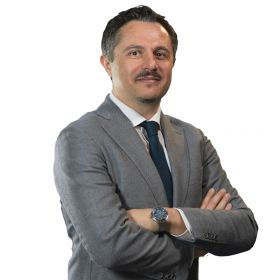Course Overview
This course has been developed in order to be available to different kind of users: citizens, specialists, and engineering bachelor students. The first three lessons are for everyone. In particular, the first lesson is an introductory one and it explains the potential benefits in the use of a heat pump during the energy transition, the ongoing policies in the worldwide countries for a major spread of the heat pump technology and all the methods in the use of a heat pump with their applications
In the second lesson the energy demand of a building is explained as a function of the building typology and the climate with their calculation models.
In the third lesson a comparison between an electric heat pump and a burner from economical, energetic and environmental point of view is discussed.
The fourth and the fifth lessons are for specialists and engineering bachelor students. More in detail, in the lesson 4 the working principle of heat pump systems is discussed. Also, the performance curve of the systems and their sizing are illustrated.
In the lesson 5 the sizing of a heat pump and the estimation of its seasonal performance indicators are shown.
The last three lessons are for engineering bachelor students. Particularly, in the sixth lesson different technologies related to the system size and the end user needs are described. In the seventh lesson the innovations in terms of working fluids, components and the use of IOT in the heat pump market are illustrated.
Finally, in the last lesson, the perspectives in the use of heat pump in order to help the demand –side of the energy management are shown.
At the end of the course, it is possible to request an attendance certification: it will be signed by the teacher on letterhead.
If only few lessons have been seen, the certificate will include the contents and the topics of the actually studied lessons.
Alternately, for all those who want to obtain a certificate declaring the understanding of the course topics, please:
- Send an email to info.ehp.emma@gmail.com through which it will be possible to plan a date in which an online exam will be taken;
- The online exam will be taken on an online platform;
- The exam consists in answering to 10 multiple choice questions among those published during the course;
In this latter case, the certificate will be signed by the techer on letterhead.
Learning Objectives
Once students have completed the course, they will be able to:
know the potential use of a heat pump in the energy transition framework
describe heating and cooling load profile
do simple calculations of primary energy consumption and environmental impact
describe the heat pump working principle and understand the variation of the performance under variable boundary conditions
know the basics of different technologies
estimate the performance of a heat pump according to standards
Size a heat pump and read critically the results of a dynamic simulation
describe the technologies for heat storage with heat pumps
- know some examples of application in complex systems
Do you want to know more about the ASSET project and get engaged to it? Sign in the newsletter and community on energytransition.academy. Be part of us.
Use of content and licenses
CC BY SA ND
Course Structure
- Lesson 1 - Electric heat pumps: the potential role in a scenario of large energy production by renewable sources
- Lesson 2 - Heating and Cooling loads of EU buildings
- Lesson 3 - Primary energy consumption and environmental impact
- Lesson 4 - How does a heat pump work? Which factors do affect a heat pump operation?
- Lesson 5 - Estimation of seasonal performance indicators
- Lesson 6 - Recent technology for heat pumps
- Lesson 7 - Heat pumps innovations
- Lesson 8 - Perspectives of heat pumps in the energy transition framework
Teacher
Alfonso William Mauro
Alfonso William Mauro is Associate Professor of Refrigeration and Applied Thermodynamics at the Federico II University of Naples. He has experience in teaching, R&D and technology transfer activities in the field of energy conversion systems.




